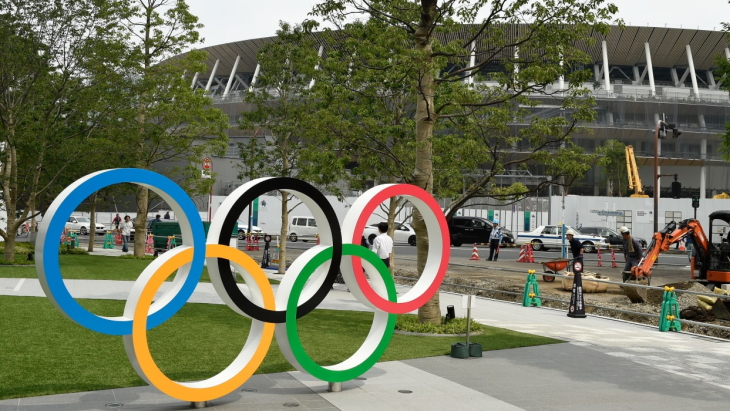
UPDATE: USA Today have reported that the Tokyo 2020 Olympic Games will be postponed, possibly to 2021.
Speaking with International Olympic Committee (IOC) member Dick Pound, he states the games will be postponed. The four week period of discussion will be used to work out other details, such as when the Olympics will resume.
“On the basis of the information the IOC has, postponement has been decided,” Pound said to USA Today. “The parameters going forward have not been determined, but the Games are not going to start on July 24, that much I know.”
USA Today also reports the IOC will soon announce what it will happen next. “It will come in stages,” Pound said. “We will postpone this and begin to deal with all the ramifications of moving this, which are immense.”
Asking the IOC for a response, spokesperson Mark Adams stated to USA Today “Well, as we announced yesterday, we are looking at scenarios.”
Whether this is miscommunication, assumption, or another reason as to the seemingly rapid decision, we are awaiting official confirmation.
Original Story:
The International Olympic Committee (IOC) has stated they have started “detailed discussions” as to if the Tokyo 2020 Olympic Games should be postponed due to the coronavirus outbreak.
In an official statement by the Executive Board of the IOC, they state the IOC will “step up its scenario-planning.” This includes “modifying existing operational plans for the Games to go ahead on 24 July 2020, and also for changes to the start date of the Games.”
The statement continues, explaining just some of the challenges.
“A number of critical venues needed for the Games could potentially not be available anymore. The situations with millions of nights already booked in hotels is extremely difficult to handle, and the international sports calendar for at least 33 Olympic sports would have to be adapted. These are just a few of many, many more challenges.”
In order to “further to the study of different scenarios,” the IOC will require “the full commitment and cooperation of the Tokyo 2020 Organising Committee and the Japanese authorities, and of all the International Federations (IFs) and National Olympic Committees (NOCs).”
Others who would need to commit and collaborate would be “the Rights-Holding Broadcasters (RHBs) and our TOP Partner sponsors […] as well as cooperation from all the Games’ partners, suppliers and contractors.”
Ultimately, this will mean a discussion of whether the games should be postponed. The IOC is “confident that it will have finalised these discussions within the next four weeks.”
“The IOC will, in full coordination and partnership with the Tokyo 2020 Organising Committee, the Japanese authorities and the Tokyo Metropolitan Government, start detailed discussions to complete its assessment of the rapid development of the worldwide health situation and its impact on the Olympic Games, including the scenario of postponement. The IOC is confident that it will have finalised these discussions within the next four weeks, and greatly appreciates the solidarity and partnership of the NOCs and IFs in supporting the athletes and adapting Games planning.”
However, the Executive Board “emphasised that a cancellation of the Olympic Games Tokyo 2020 would not solve any of the problems or help anybody. Therefore, cancellation is not on the agenda.”
Tokyo 2020 organizers confirmed in their own statement that they had begun these discussions, “in full coordination with the Tokyo Metropolitan Government, the Government of Japan, relevant Japanese authorities, international sport federations and National Olympic Committees.”
IOC President Thomas Bach also issued a statement to the athletes, stating the IOC “made it our leading principle to safeguard the health of everyone involved, and to contribute to containing the virus.”
Reiterating similar information in the prior statement, Back called for athletes to hold onto hope.
“What we all share, however, is tremendous uncertainty. This uncertainty rocks our nerves and raises or strengthens doubts about a positive future; it destroys hope. Some even have to fear for their very existence. This uncertainty stems from the fact that, at this moment, nobody can really make fully reliable statements about the duration of this fight against the virus. This is true for sport, science, the media, politics, and all of society. Therefore also the IOC can unfortunately not answer all your questions. This is why we are relying on the advice of a Task Force including the World Health Organization (WHO).
[…] I wish, and we all are working for this, that the hope of so many athletes, NOCs and IFs from all five continents have expressed will be fulfilled: that at the end of this dark tunnel we are all going through together, not knowing how long it is, the Olympic flame will be a light at the end of this tunnel.
As a fellow Olympian, I hope that you can understand our challenge, and accept and support our principles which are to safeguard your, your families’ and everyone’s health, and to keep your Olympic dream alive.”
The coronavirus (also known as COVID-19 officially, or Chinese Flu to others) has affected many worldwide, from businesses to public gatherings and events. [1, 2, 3, 4, 5, 6, 7].
This includes the postponement and cancellation of GDC and E3 2020 respectively. At this time, Gamescom 2020 is still being prepared, with organizers monitoring local regulations and the virus’ spread.
The Johns Hopkins Whiting School of Engineering are mapping the virus’ spread [1, 2]. As of this time of writing, there have been almost 353,000 confirmed cases worldwide, and over 15,000 deaths. Over 100,000 people have made a “total recovery.” Japan has the 25th most confirmed cases at 1,101. There have been 41 deaths, and 235 recoveries.
On March 11th, the World Health Organization (WHO) declared the outbreak “can be categorized as a pandemic.”
Until otherwise stated, the Tokyo 2020 Olympic Games will be held July 24th to August 9th.
Image: Tokyo2020.org